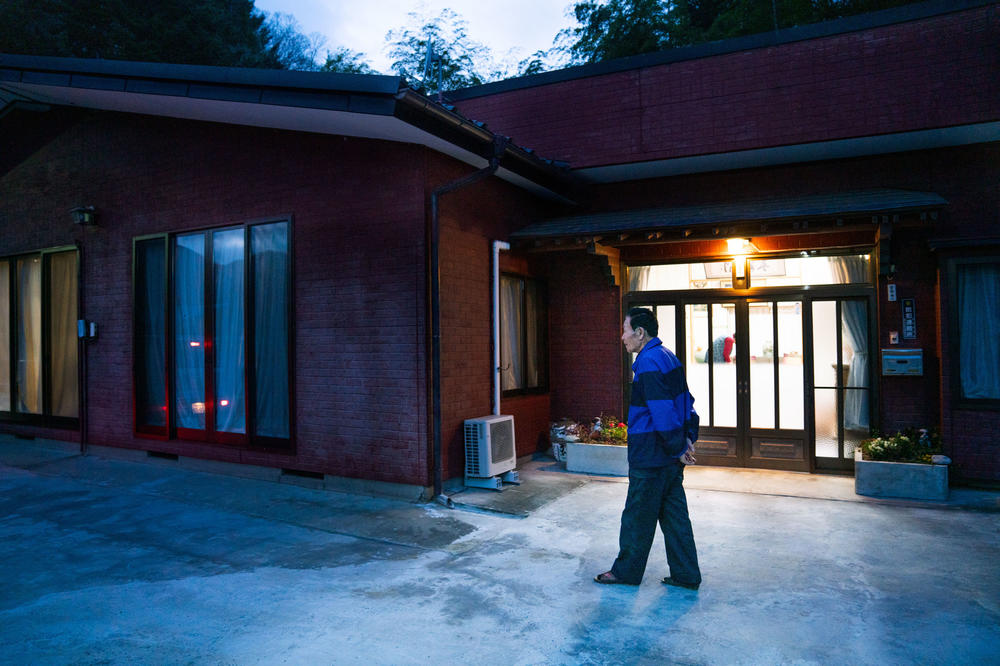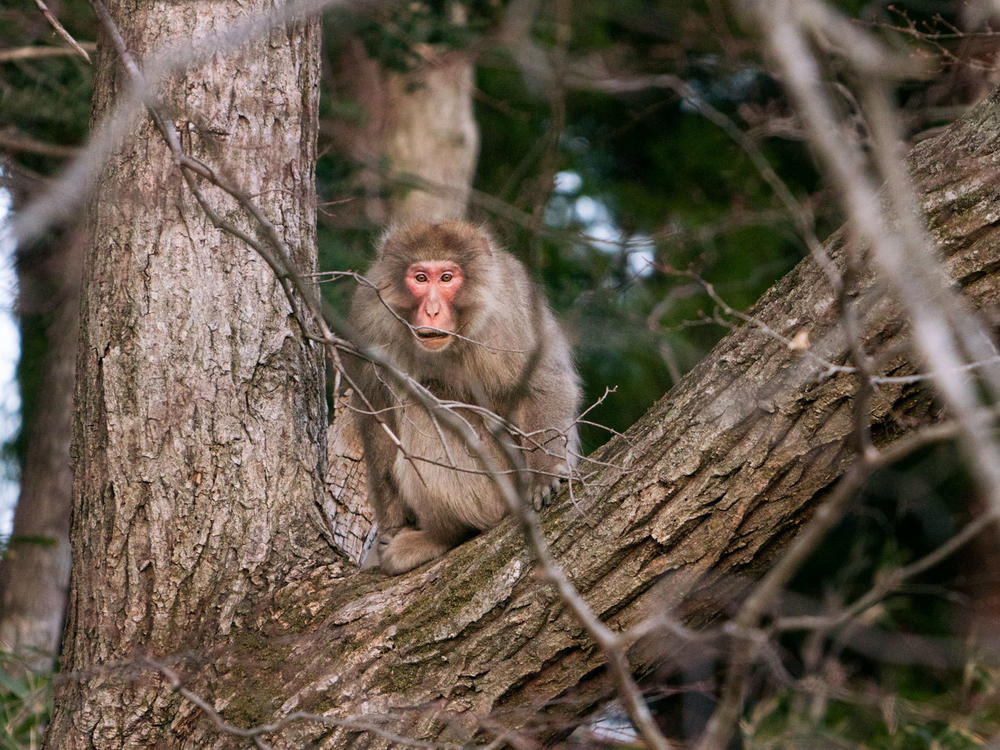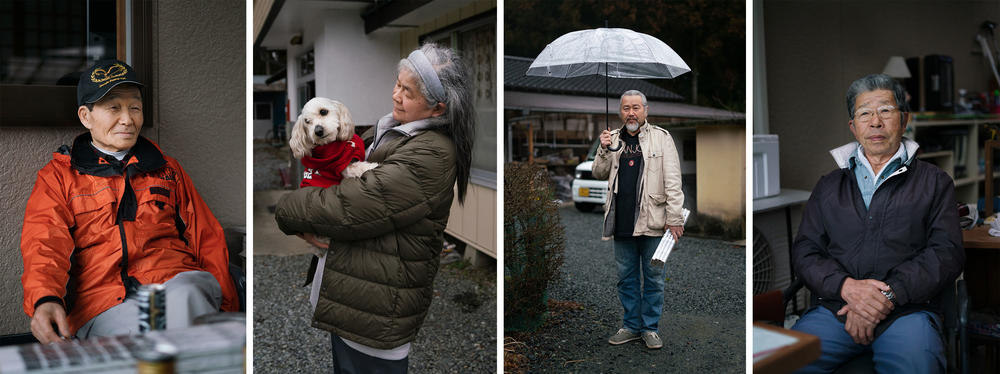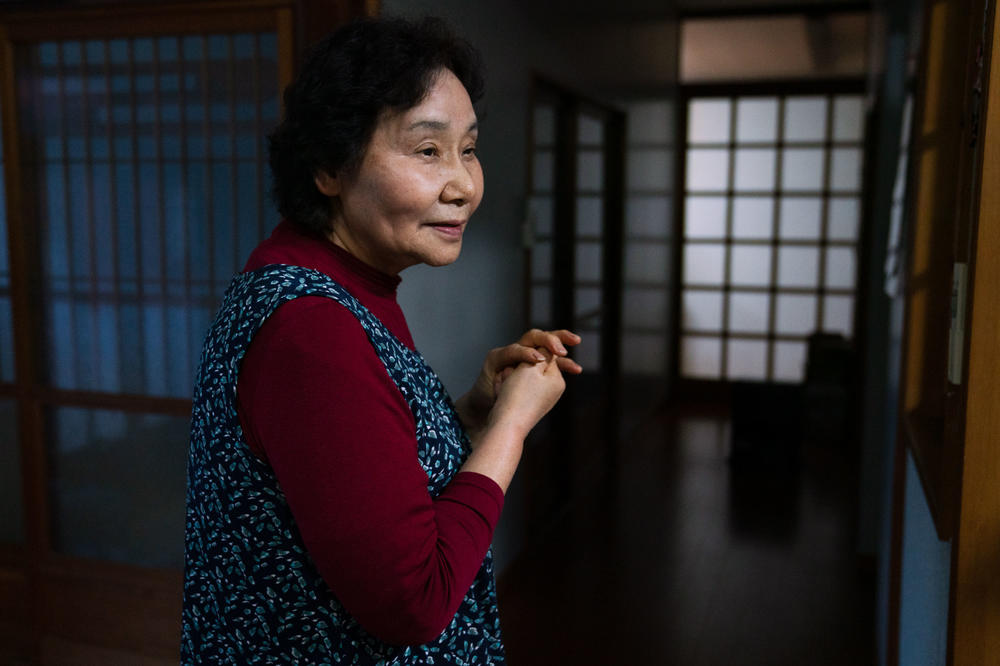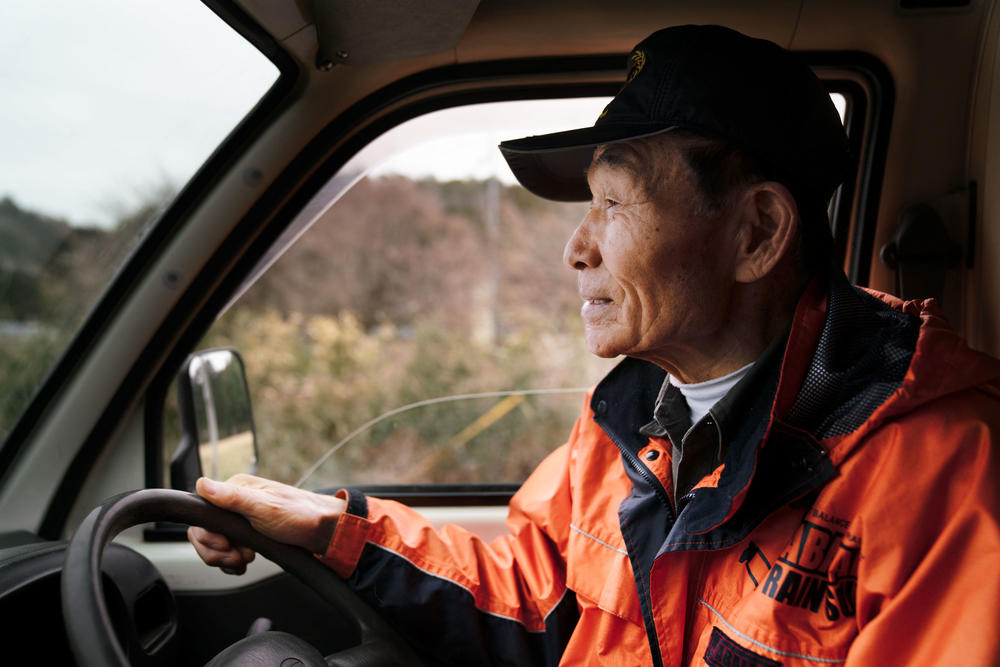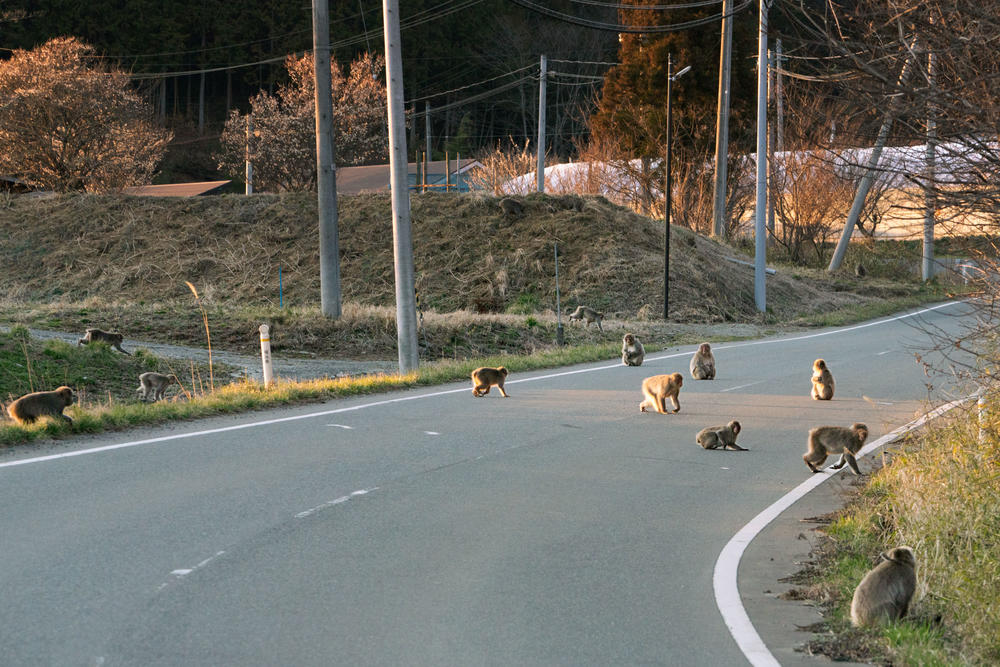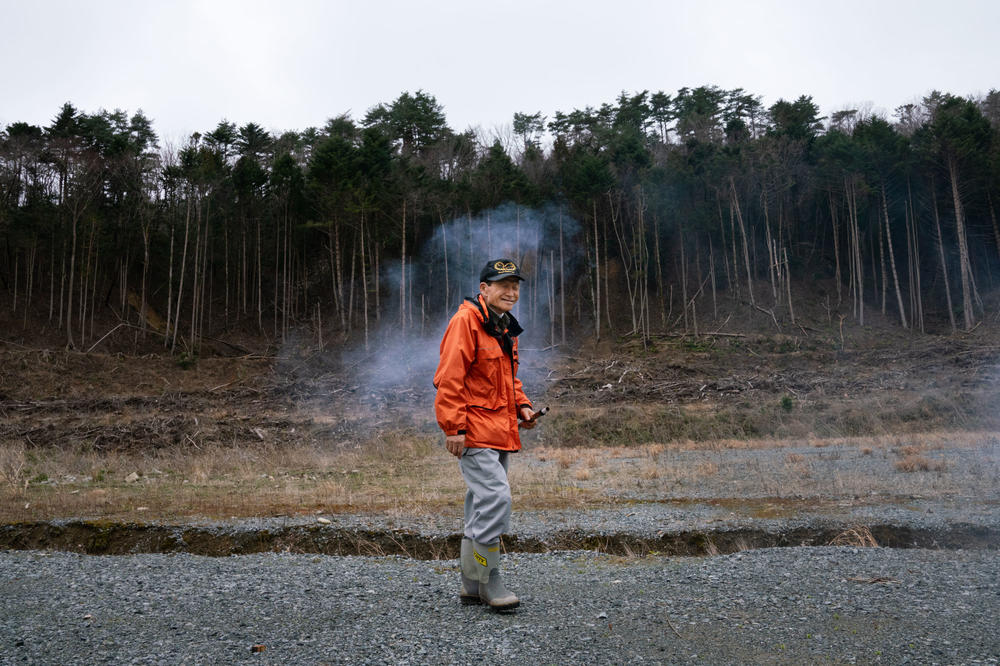Section Branding
Header Content
In Rural Fukushima, 'The Border Between Monkeys And Humans Has Blurred'
Primary Content
Shuichi Kanno rips tape off the top of a large cardboard box at his house in the mountains in Fukushima prefecture in Japan. He opens the box and rustles around to pull out pack after pack of long, thin Roman candle fireworks. The words "Animal Exterminating Firework" are written in Japanese on the side of each canister.
Kanno has been battling hordes of macaque monkeys that have encroached upon his neighborhood in a rural area of Minamisoma. These fireworks are his main deterrent — not to cause the monkeys any physical harm, but to scare them away with a loud bang. That is, until they regain their confidence and come back a few days later, which they do like clockwork, Kanno says.
"In the early morning while I'm sleeping, just when I'm about to wake up, I hear the noise," the 79-year-old says in Japanese as he stacks the fireworks on his living room table. "The sound of the monkeys running around on the roof, getting into the gardens, eating all my food. I have to fight them."
Hundreds of thousands of people evacuated this area nine years ago, fleeing plumes of radioactive material after three reactors exploded at the Daiichi nuclear power plant, one of the most serious nuclear disasters in history. Whole towns and neighborhoods like Kanno's were left empty of human life for years — and, much like Chernobyl, nature started to reclaim the space. Plants poke through sidewalks and buildings, while wild boar, raccoons and foxes roam the streets. But in recent years, many evacuation orders have lifted and people have started to return, meaning humans and animals are having to figure out new ways to coexist — or not.
"The monkeys never used to come here, but after the disaster, the border between monkeys and humans has blurred," Kanno explains. "The houses were empty, but the gardens were still growing — plums, pears, chestnuts, persimmons. It was a wonderland for monkeys, an all-you-can-eat buffet. And they remembered that."
His neighborhood is on the very edge of the evacuation area, relatively far from Daiichi. People stayed away for only a few years, but by the time they came back, the monkeys had become comfortable. And, Kanno points out, half the houses are still empty and only older people came back. They just don't have the numbers they need to win the battle against the monkeys without backup.
That is where the fireworks come in, subsidized by the local government after residents complained. The governments here have provided several different kinds of tools, such as wild boar traps and electric fences for farmers, to help communities with animal problems.
Yuriko Kanno, 75, Shuichi's wife, comes into the living room, looks at the pile of fireworks and laughs. "I've been worried that this village is going to become like that movie, the monkey planet one," she says, referring to Planet of the Apes. "I've seen it — it could happen!"
She walks away giggling. Shuichi Kanno is laughing too. The monkeys are annoying, yes, but they're also a source of entertainment for the aging residents, he concedes.
"Look, I think they're cute. I would absolutely never hurt them," he says. "None of this is their fault. It's nuclear power's fault. It's the fault of humans."
Shuichi Kanno is a leader in the neighborhood, and he's in charge of distributing the fireworks to any of his neighbors who want them. The neighbors all have to sign an agreement saying they understand the dangers and — most importantly, he says — that they will not hurt any animals.
He loads the fireworks into the trunk of his car and drives down forest roads from house to house, dropping off packs of fireworks at every stop. As he drives, he points to all the natural beauty in the area. The nuclear disaster didn't just change his relationship with monkeys, he says.
"I loved hiking, and foraging for wild vegetables, finding wild mushrooms. But now it's so dangerous," Kanno explains, referring to the high levels of radioactive cesium still present in the dense forests here. "We can't have a relationship with nature anymore. It's gone."
He pulls up to the house of Hachiro Endo, 77, whose family has been in the area for generations. The home has a beautiful garden in front and long strands of drying persimmons hanging in the garage.
Endo is delighted by the delivery. He has gone through his entire stockpile protecting his garden. "I'm alert all the time," Endo sighs. "The monkeys, they've taken over my life."
He says he remembers a time when he was little and his grandfather tried to lure the monkeys down from the mountains into the village, hoping to boost tourism to the area by becoming a monkey town. He was never successful — the macaques were too afraid of humans to come down and stay.
"If only he could see it now," he says with a laugh.
A few days later, Kanno is out on monkey patrol. He has just seen a troop of monkeys running from his house out into the neighborhood. He's wearing knee-high rubber boots, a bright orange jacket and a baseball cap while clutching a firework in one hand and the steering wheel of his pickup truck in the other.
He drives slowly, leaning forward to scan the hills as he goes. And then suddenly, he slams on his brakes.
"There they are!" he shouts, pointing behind a shed. Dozens of monkeys are jumping toward the forest, scrambling up trees and crawling up the hillside.
He jumps out of the truck and pulls the firework from underneath his jacket, loading it onto a kind of stick so he can hold it far away. He lights the fuse and smiles, pointing it toward the hill.
Three loud booms echo through the trees. The monkeys scatter. Kanno bursts into a grin, giggling. Then he runs to every house nearby, making sure his neighbors know that he just saved their gardens from almost certain devastation.
"They won't be back tomorrow!" Kanno calls, waving the spent firework, giddy with excitement. "I won today!"
But even as he says that he loads a fresh firework and tucks it into his coat. The monkeys will be back, and the battle will continue.
Kat Lonsdorf (@lilkat_bigworld) is NPR's Above the Fray fellow. The fellowship is sponsored by the John Alexander Project, which supports foreign reporting in undercovered parts of the world. Follow the fellowship on Instagram (@thejohnaproject) and Twitter (@thejohnaproject).
Copyright 2020 NPR. To see more, visit https://www.npr.org.
